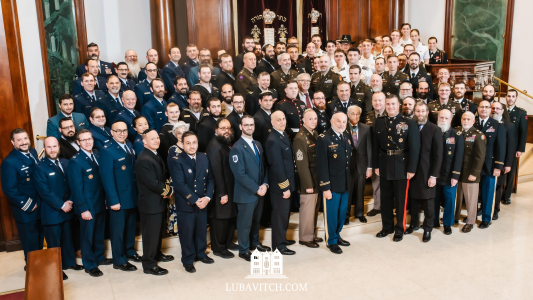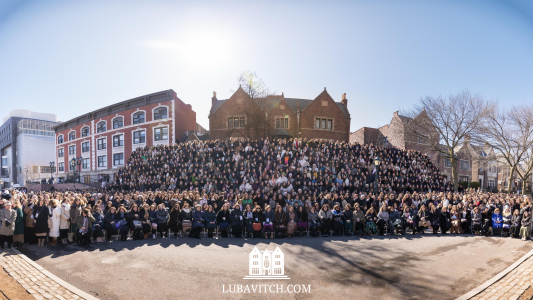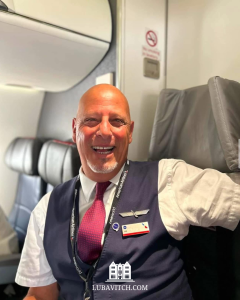“Why should I eat matzah?” “What are those funny strings hanging out of your pockets?” At a tender age, the children of Chabad couples around the world develop keen talents for relating to and teaching unaffiliated Jews. They coach adults ten times their age through blessings over food. Community kids interested in Judaism look at them as role models. Due to Chabad-Lubavitch’s success reaching deeper and deeper into Hicksville, more of these mini-Chabad representatives grow up far, far away from the epicenters of Jewish life. Leaders in their hometowns, the children of Chabad shluchim face a steep learning curve – socially and scholastically – to fit in among peers raised in mainstream Lubavitch communities
A boost for these young shluchim is on the way. Merkos Linyonei Chinuch, the social and educational division of Chabad-Lubavitch International, is rolling out “My Shliach.” The aim of the program is all in its name. Splice the Hebrew word “Shliach” in two and you get (with a little poetic license) “Sheli Ach,” or “my brother.” Older yeshiva students and newlywed rabbinical students will be paired with junior shluchim and serve as mentors, friends, tutors — everything a kid could wish for in a big brother.
When the program was first announced at the International Shluchim Convention as a new initiative, interest from Shluchim poured into headquarters. Rabbi Beryl Frankel, director of My Shliach, stopped counting after the fiftieth phone call. “’My Shliach’ is more than a big brother buddy system,” he said. “Its goals and methods are being developed by experienced educators and shluchim.”
Rabbi Moshe Kotlarsky, Vice Chairman of the Lubavitch Educational Division, explains that this is “yet another one of the creative and vital services developed by Merkos with the support of the Rohr Family Foundation, to benefit Chabad Shluchim. It’s one way of giving back to Shluchim who give so much of themselves,” he says.
“This could save a young boy from feeling lost once he gets to yeshiva,” said Chabad of New Hampshire’s Rabbi Levi Krinsky, a member of the My Shliach executive board. Not wanting to deprive his children of a top notch Jewish education, he sent several of his children, at young ages, to large Lubavitch yeshivas in New York and points beyond. “When a couple of boys took them under their wing and cared for them and talked to them, it helped them adjust. These kids don’t come home every night to get help with homework or to express a need they have.” The numbers of young shluchim studying far from home is estimated to be in the thousands. Depending on where a child is living, his My Shliach mentor will be in contact by phone and email or in person.
An additional challenge of growing up “out of town” will be met by the My Shliach mentors. Hard core Talmudic and Chasidic textual skills, a focal point of yeshiva education, are difficult to acquire in a home school or Jewish day school environment. My Shliach is in the process of developing a “structured curriculum that will provide [young shluchim] with the background they need to succeed in Talmud and Chasidic texts,” said board member Rabbi Yossi Rosenblum, Principal of Yeshiva School of Pittsburgh.
Program information and participant applications will be available this week at www.myshliach.com, but Rabbi Frankel is not leaving mentor positions up to chance hits on the site. He’s in the process of recruiting a select group of ambassadors at Chabad yeshivas across North America. “They will be our eyes and ears,” to recruit worthy mentors and keep track of progress, he says. My Shliach mentors will participate in training programs and devote a set time each week to their ‘little brothers.’ For their efforts, the mentors will be compensated and offered a set of perks such as preference for leadership spots in Merkos-sponsored Passover and summer programs around the world. Giving of themselves for My Shliach signals a strain of altruism, a must for any future Chabad representative. “Someone who is involved in helping others and is taking a burden of worry off of a shliach’s shoulders is the right candidate for Merkos’s other programs,” said Rabbi Mendy Kotlarsky, director of JNet, Chabad’s telephone-based Torah study program.
It was in JNet’s offices that My Shliach first took shape. JNet has seen great success building bonds between Jews via telephone. My Shliach is an adaptation of JNet’s recipe for relationship building. Once the pilot phase is completed and evaluated, the number of participants will be expanded, and a girls’ division is planned for the future. Chabad has brought a shliach to Jewish communities across six continents, and now My Shliach is bringing outreach home.










Be the first to write a comment.